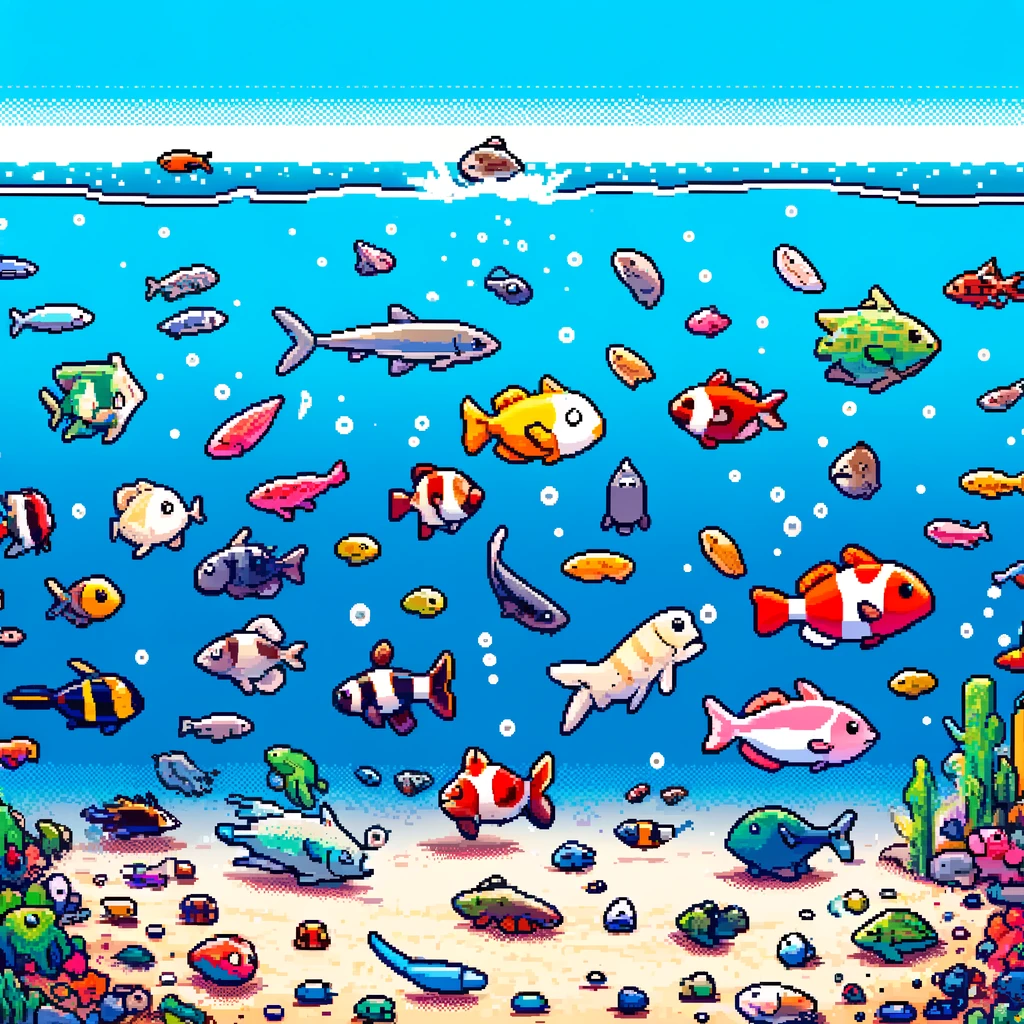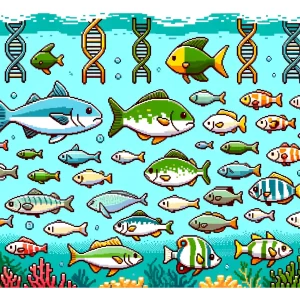
When Survival Hangs by a Thread: The Alarming Reality of Fish Population Collapse and Climate Change
Welcome to the world of aquatic life, where the ripple effects of climate change are becoming increasingly apparent and alarming. The subject of today’s exploration is a scientific study that throws light on a dire issue – the escalating mass mortality events in fish, particularly at their vulnerable early life stages. The study unveils the daunting reality that our aquatic friends are facing and underscores the urgent need for mitigation actions.
The Silent Waves of Change
Our oceans are undergoing a transformation, largely unnoticed but deeply impactful. Marine heatwaves, more frequent and intense due to climate change, are causing mass mortality events in the aquatic world, particularly affecting fish at their early life stages. These events, varied in nature, range from thermal stress to diseases, often exacerbated by human activities. The study brings to the forefront the criticality of early life stages in fish, which are pivotal for the overall health and sustainability of fish populations.
A Tipping Point for Population Dynamics
The research paints a stark picture: increasing frequency, intensity, and duration of these mass mortality events can lead to population collapses. By analyzing 39 fish species, the study reveals a worrying trend. The probability of collapse escalates with the rising frequency and severity of these events. This revelation is significant, considering the crucial role fish play in our ecosystems and economies.
The Complex Web of Survival
The resilience of fish populations to these extreme events isn’t just a matter of frequency or intensity; it’s also intricately linked to specific traits of different species. Factors like natural mortality, recruitment variation, and density dependence play a crucial role in determining how fish populations respond to these catastrophic events. This nuanced understanding is vital for developing targeted conservation strategies.
What Lies Beneath: The Model Explained
The researchers used a sophisticated modeling approach to simulate various scenarios of mass mortality events and their impacts on fish populations. They considered the complex interplay of mortality, recruitment, and size in their models, offering a comprehensive view of how different species might fare under increasing environmental pressures.
A Spectrum of Risk
The study categorizes fish species into different risk categories based on their sensitivity to mass mortality events. Some species are more robust, weathering high-intensity events better, while others are more vulnerable, even to less severe events. This categorization is a step forward in understanding which species need more urgent attention and conservation efforts.
A Clarion Call for Action
The findings of this study are a wake-up call. They highlight the urgent need for monitoring and mitigating the impacts of climate change on marine life. By understanding the specific vulnerabilities of different fish species, we can tailor conservation efforts more effectively and help safeguard our aquatic ecosystems.
The Path Forward
This study isn’t just a harbinger of doom; it’s a roadmap for action. By identifying the species at most risk and understanding the dynamics of population collapse, we can develop more effective conservation strategies. It’s a call for collective action – from policymakers, researchers, conservationists, and the public – to protect our marine biodiversity.
Engage and Share Your Thoughts!
I encourage you to share this blog, discuss it with your friends, and engage in conversations about marine conservation. Your voice matters in shaping a sustainable future for our oceans.
Unlock the Secrets of Science:
Get ready to unlock the secrets of science with ‘This Week in Science’! Our newsletter, designed specifically for educators and science aficionados, delivers a weekly digest of revolutionary research, innovative discoveries, and motivational tales from the scientific frontier. Subscribing is your key to a treasure trove of insights that can revolutionize your approach to teaching and learning science. Sign up today at no cost and start a journey that deepens your understanding and passion for science.
About the Author
Jon Scaccia, with a Ph.D. in clinical-community psychology and a research fellowship at the US Department of Health and Human Services, is renowned for his expertise in public health systems and quality programs. He specializes in implementing innovative, data-informed strategies to enhance community health and development. Jon’s significant contribution to public health is underscored by his creation of the R=MC² readiness model, which aids organizations in effectively navigating change. And my cousin works in Salmon Fisheries!



